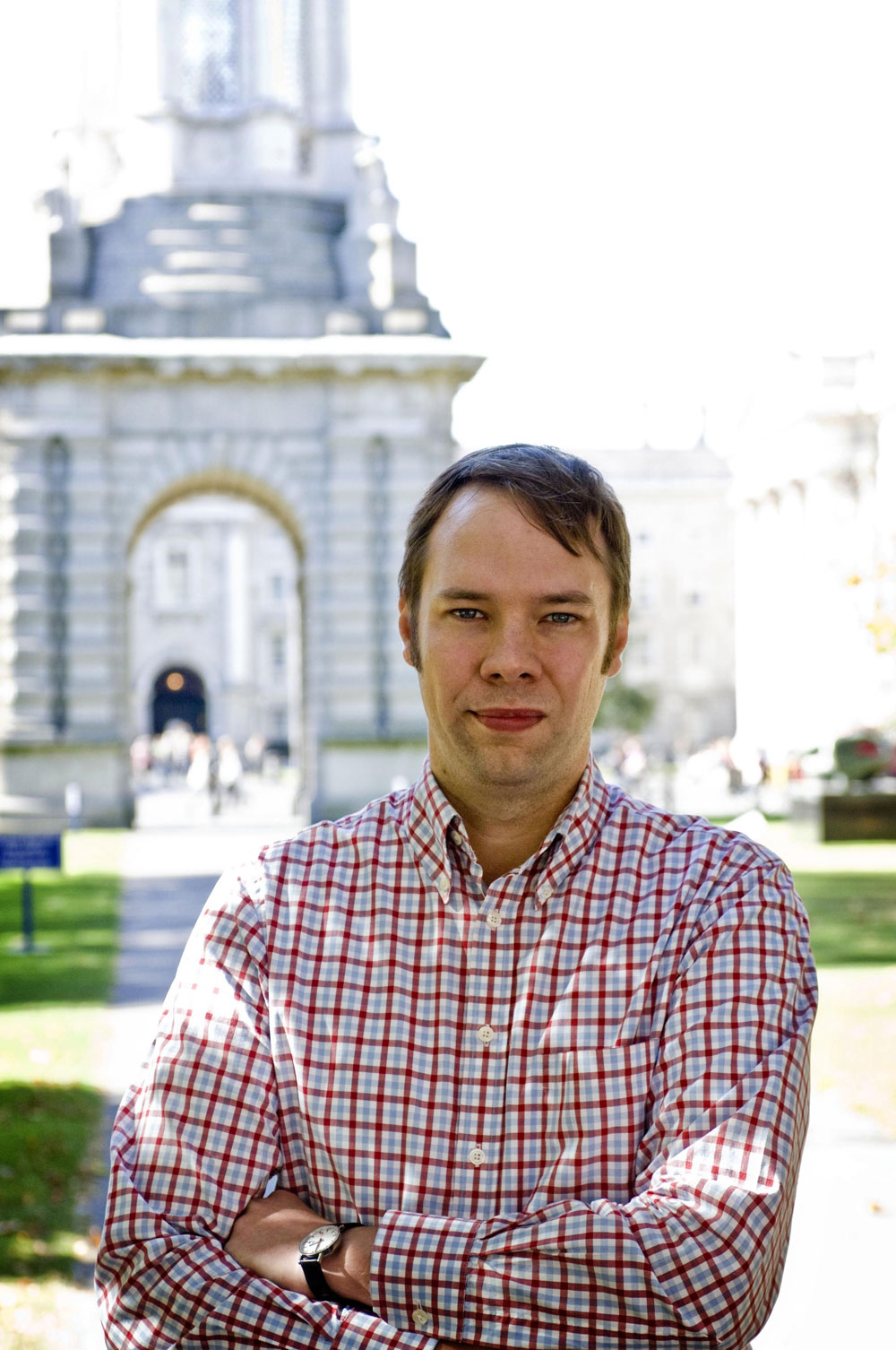Overview
A May 20th and 21st, 2022 Conference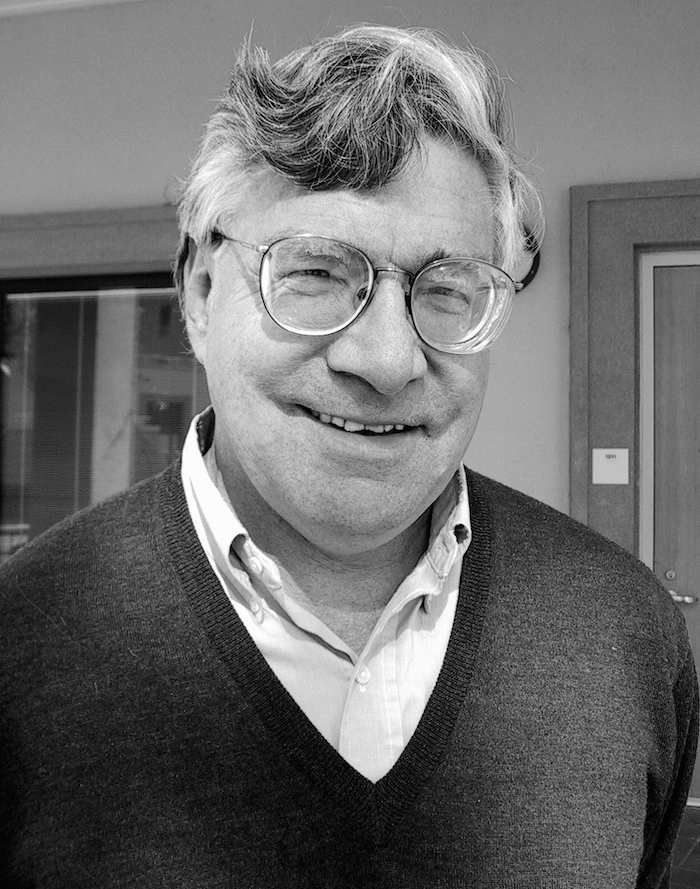
Work, capitalism, and democracy. Historians have spent decades considering their interwoven connections and how each has shaped and animated American politics, economy, and society. This conference interrogates the changing shape of historical work on these themes since the early 1980s, when Center director Nelson Lichtenstein’s first book reshaped how a new generation of scholars thought about the struggle between workers, capitalists, and the state apparatus during World War II. Since the publication of Labor’s War at Home: The CIO in World War II, labor history has been transformed from an exciting but discrete subject that probed working-class mentalities to an ever expanding interpretative approach than now encompasses the study of race, gender, capitalism, social thought, legal history and theory, government social policy, and partisan politics. Lichtenstein’s own work has tracked this scholarly advance: probing at various times and venues the social ecology of wildcat strikes, the meaning of rights at work and in society, the theory and practice of corporatism, the rise and demise of the giant corporation, the structures governing global supply chains, and the promise and failure of liberal politics in 20th century America. Those making presentations and other interventions at the Work, Capitalism, and Democracy: Past, Present, and Future conference will offer fresh perspectives on these and many other themes taken from their own research and that of the new generation of historians of which they are such a vital part.
Funding for this conference has come from UCSB’s graduate division, history department, Hull Chair of Feminist Studies, College of Letters & Science, Division of Humanities and Fine Arts, and Center for the Study of Work, Labor, and Democracy.
Schedule
All sessions will take place in the McCune Room, 6th Floor, HSSB.
May 20, 2022
Registration & Coffee 8:30-9:30 am
Welcome 9:30-9:45 am, Stephan F. Miescher, University of California, Santa Barbara, and Mary Hancock, University of California, Santa Barbara
Session One 9:45-11:30 am, “From Labor Conflicts at Home to a Global Retail Revolution”
Chair: Elizabeth Tandy Shermer, Loyola University Chicago
Meg Jacobs, Princeton University
“Out of this Furnace: A Reexamination of Labor, Power, and Politics in the New Deal Order”
Kit Smemo, Washington University, St. Louis
“From the Rouge to the White House: Labor and the Transformation of American Democracy in The Most Dangerous Man in Detroit”
Reuel Schiller, University of California, Hastings.
“State of the Union and the State of the State: What We Discovered When Nelson Taught Us to Bring the State Back In”
Shane Hamilton, University of York
“Management and Power in Global Supply Chains: The Need for History in an Ahistorical Field”
Lunch 11:30-12:30 pm
Session Two 12:30-2:15 pm, “Law and Public Policy”
Chair: Neil Johnson, University of California, Santa Barbara
Andrew Wender Cohen, Syracuse University
“Rethinking the Historical Relationship between Incarceration and Capitalism”
Jean-Christian Vinel, Paris Diderot University
“An American Dilemma? Liberals, Conservatives, and the Constitutionality of Right-to-Work Laws in the 1940s”
Joe Thorndike, Tax History Project
“Taxpayers in Chief: Presidents, Their Taxes, and the Meaning of Fiscal Citizenship”
Jennifer Klein, Yale University
“Wastelands: The Economic and Political Geography of Waste, Coercion, and Marginalization in Southeastern Louisiana”
Session Three 2:30-4:15 pm, “Reflecting on Political Economy”
Chair: Laura Kalman, University of California, Santa Barbara
Mary, Furner, University of California, Santa Barbara
Alice O’Connor, University of California, Santa Barbara
Gary Gerstle, University of Cambridge
Michael Kazin, Georgetown University
Richard Appelbaum, University of California, Santa Barbara
Alumni House Dinner, Presiding, Eileen Boris, University of California, Santa Barbara
530pm Drinks
7pm Dinner
May 21, 2022
Session One 9:00-10:45am, “The Many Struggles for Justice: Work, Culture, and Politics”
Chair: Toby Higbie, University of California, Los Angeles
Lauren Sklaroff, University of South Carolina
“A Working Class Hero is Something to Be”
John Munro, University of Birmingham
“Anticommunism and Empire”
Jesse Halvorsen, University of California, Santa Barbara
“From Political Impossibility to Law: Motor Carrier Deregulation during the Carter Administration”
Leandra Zarnow, University of Houston
“Gender Gap: Bella Abzug and Mim Kelber’s Labor Feminist Critique of American Politics in the 1980s“
Session Two 11:00-12:45, “American Politics at Home and in the World”
Chair: Henry Maar, California State University, Northridge
Maria Fedorova, Macalster College
” ‘I’m not sentimental about Russia:’ Harold Ware, Soviet Farms, and American Agrarian Radicalism in the 1920s and ‘30s”
Colleen Doody, DePaul University
“Women and Children as Producers: Chicago’s Candy Workers, 1893-1914”
Carl Bon Tempo, University at Albany, State University of New York
“From the ‘Labor Question’ to the ‘Immigration Question’: Work, Newcomers, and Politics across the Twentieth Century”
Jill Jensen, University of Redlands
“Capturing Global Development: The United States and ‘Soft Aid,’ from Kennedy to Ford”
Lunch 12:45-2:00 pm
Session Three 2:00-3:45 pm, “Ideas, Ideologies, and the Public Sphere”
Chair: George Cotkin, California Polytechnic State University
Daniel Geary, Trinity College Dublin
“McGovernites and Neocons: Michael Harrington, Max Shachtman, and the Realignment of the Democratic Party”
Samir Sonti, CUNY School of Labor and Urban Studies
“The Politics of Inflation, Past and Present”
Cody Stephens, Pennsylvania State University
“Results and Prospects of the Long March: Assessing the Legacy of 1960s Radicals’ Decision to Wage Struggle from the Within the University”
Andrew Elrod, United Teachers of Los Angeles
“Class Conflict or Class Collaboration?: Price and Wage Fixing under American Capitalism from Truman to Biden”
4:00 pm, Closing Reflections
Elizabeth Tandy Shermer, Loyola University Chicago, Introduction
Nelson Lichtenstein, University of California, Santa Barbara
Registration
New Registration Form Available Here
Please register before April 19th, 2022.
April 19th, 2022 is also the last date to register with the conference hotel, the Best Western South Coast Inn, (805) 967-3200, for the “Nelson Lichtenstein History Group” Rate.
The sessions will all take place in the McCune Room in the Humanities and Social Sciences Building on UC Santa Barbara’s campus. The McCune Room is on the six floor of the building and is only accessible via elevator. The location of the Humanities and Social Sciences Building can be found here.
Please direct questions to Elizabeth Tandy Shermer, eshermer@luc.edu
Participants

Richard Appelbaum is former MacArthur Foundation Chair (an honor he shared with Nelson Lichtenstein) and Distinguished Research Professor Emeritus in Sociology and Global Studies at the University of California, Santa Barbara, where he co-founded the Department of Global & International Studies. His research focuses on labor issues and workers’ rights, and the rise of China as a technology power. He has been Chair of Sociology, Director of Graduate Studies in Global & International Studies, Director of the Institute for Social, Behavioral, and Economic Studies, and co-PI at the NSF Center for Nanotechnology in Society. He served on the UCOP Taskforce on Trademark Licensing, co-authoring the sweat-free code of conduct that governs licensed apparel purchases on all UC campus, and he chairs the Advisory Council of the Workers’ Rights Consortium, a D.C.-based NGO that oversees enforcement of codes of conduct on 152 colleges and universities. He is co-author, with Cong Cao, Xueying Han, Rachel Parker, and Denis Simon, of Innovation in China: Challenging the Global Science and Technology System (Polity, 2018), and co-editor, with Nelson Lichtenstein, of Achieving Workers’ Rights in the Global Economy (Cornell University Press, 2016).

Jonathan Bell is Professor of US History and Head of Department of the Institute of the Americas at University College London. He is the author of The Liberal State on Trial: The Cold War and American Politics in the Truman Years (Columbia UP, 2004) and California Crucible: The Forging of Modern American Liberalism (University of Pennsylvania Press, 2012), and editor of Making Sense of Modern American Liberalism (University of Illinois Press, 2012), and Beyond the Politics of the Closet: Gay Rights and the American State since the 1970s (University of Pennsylvania Press, 2019). He is currently working on a book on the relationship between LGBTQ politics and the health and welfare systems in the United States since the 1960s.
 Carl J. Bon Tempo is associate professor of history at the University at Albany, State University of New York. In 2008, he published Americans at the Gate: The United States and Refugees during the Cold War with Princeton University Press. He co-authored, with Prof. Hasia Diner, Immigration: An American History, which is forthcoming in 2022 from Yale University Press. His essays and chapters have appeared in The CSCE and the End of the Cold War (Berghahn Books), Refugees in Twentieth Century Europe: The Forty Years’ Crisis (Bloomsbury), The Breakthrough: Human Rights in the 1970s (University of Pennsylvania Press), and The Human Rights Revolution: An International History (Oxford). He is currently writing a book, Human Rights at Home: The United States and Human Rights in the 1980s, for the University of Pennsylvania Press. Bon Tempo received his Ph.D. from the University of Virginia in 2004.
Carl J. Bon Tempo is associate professor of history at the University at Albany, State University of New York. In 2008, he published Americans at the Gate: The United States and Refugees during the Cold War with Princeton University Press. He co-authored, with Prof. Hasia Diner, Immigration: An American History, which is forthcoming in 2022 from Yale University Press. His essays and chapters have appeared in The CSCE and the End of the Cold War (Berghahn Books), Refugees in Twentieth Century Europe: The Forty Years’ Crisis (Bloomsbury), The Breakthrough: Human Rights in the 1970s (University of Pennsylvania Press), and The Human Rights Revolution: An International History (Oxford). He is currently writing a book, Human Rights at Home: The United States and Human Rights in the 1980s, for the University of Pennsylvania Press. Bon Tempo received his Ph.D. from the University of Virginia in 2004.
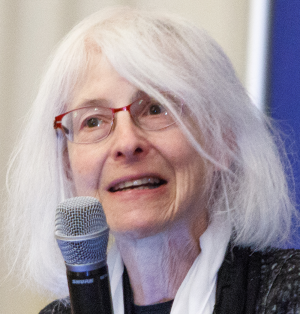 Eileen Boris is the Hull Professor in the department of feminist studies and an affiliate professor of history, black studies, and global studies at the University of California, Santa Barbara. She is the author of Art and Labor: Ruskin, Morris, and the Craftsman Ideal in America (1986) and Home to Work: Motherhood and the Politics of Industrial Homework in the United States (1994), winner of the Philip Taft Prize in Labor History, a coauthor, with Jennifer Klein, of Caring for America: Home Health Workers in the Shadow of the Welfare State (2012), winner of the Sara A. Whaley Prize from the National Women’s Studies Association, and Making the Woman Worker: Precarious Labor and the Fight for Global Standards, 1919-2019 (2019). She is also a coeditor of Major Problems in the History of American Workers (2002), The Practice of U.S. Women’s History: Narratives, Intersections, and Dialogues (2007), and Intimate Labors: Technologies, Cultures, and the Politics of Care(2010). The recipient of the LAWCHA Distinguished Service Award and the Rachel Fuchs Memorial Award for Mentoring from the CCWH, she has served as co-president of the Coordinating Council for Women in History, president of the board of trustees of The journal of Women’s History, co-chair of the program committee for the 2005 Thirteen Berkshire Conference on the History of Women and as president of the International Federation for Research in Women’s History.
Eileen Boris is the Hull Professor in the department of feminist studies and an affiliate professor of history, black studies, and global studies at the University of California, Santa Barbara. She is the author of Art and Labor: Ruskin, Morris, and the Craftsman Ideal in America (1986) and Home to Work: Motherhood and the Politics of Industrial Homework in the United States (1994), winner of the Philip Taft Prize in Labor History, a coauthor, with Jennifer Klein, of Caring for America: Home Health Workers in the Shadow of the Welfare State (2012), winner of the Sara A. Whaley Prize from the National Women’s Studies Association, and Making the Woman Worker: Precarious Labor and the Fight for Global Standards, 1919-2019 (2019). She is also a coeditor of Major Problems in the History of American Workers (2002), The Practice of U.S. Women’s History: Narratives, Intersections, and Dialogues (2007), and Intimate Labors: Technologies, Cultures, and the Politics of Care(2010). The recipient of the LAWCHA Distinguished Service Award and the Rachel Fuchs Memorial Award for Mentoring from the CCWH, she has served as co-president of the Coordinating Council for Women in History, president of the board of trustees of The journal of Women’s History, co-chair of the program committee for the 2005 Thirteen Berkshire Conference on the History of Women and as president of the International Federation for Research in Women’s History.
 Andrew Wender Cohen is the Montgomery-Gruber Professor of History at Syracuse University. He has published two books, Contraband: Smuggling and the Birth of the American Century (Norton, 2015) and The Racketeer’s Progress: Chicago and the Struggle for the Modern American Economy, 1900-1940 (Cambridge, 2004), as well as several articles, notably “Smuggling, Globalization, and America’s Outward State, 1870-1909” in the Journal of American History (2010). In 2019, he completed a microhistory entitled Gangster of New York, which uses the life of a Latinx assassin turned Civil War hero to understand violence in the nineteenth-century United States. His current project, “Anthony Comstock’s Gilded Age,” will examine sex, law, and politics in the post-Civil War era. He has won fellowships from the Radcliffe Institute for Advanced Study, the American Council of Learned Societies, the National Humanities Center, and others. In 2005, the Maxwell School of Citizenship and Public Affairs awarded him the Daniel Patrick Moynihan Award. He co-edits a book series on “American Business, Politics, and Society” with the University of Pennsylvania Press and sits on the editorial boards of Reviews in American History and Law and History Review.
Andrew Wender Cohen is the Montgomery-Gruber Professor of History at Syracuse University. He has published two books, Contraband: Smuggling and the Birth of the American Century (Norton, 2015) and The Racketeer’s Progress: Chicago and the Struggle for the Modern American Economy, 1900-1940 (Cambridge, 2004), as well as several articles, notably “Smuggling, Globalization, and America’s Outward State, 1870-1909” in the Journal of American History (2010). In 2019, he completed a microhistory entitled Gangster of New York, which uses the life of a Latinx assassin turned Civil War hero to understand violence in the nineteenth-century United States. His current project, “Anthony Comstock’s Gilded Age,” will examine sex, law, and politics in the post-Civil War era. He has won fellowships from the Radcliffe Institute for Advanced Study, the American Council of Learned Societies, the National Humanities Center, and others. In 2005, the Maxwell School of Citizenship and Public Affairs awarded him the Daniel Patrick Moynihan Award. He co-edits a book series on “American Business, Politics, and Society” with the University of Pennsylvania Press and sits on the editorial boards of Reviews in American History and Law and History Review.
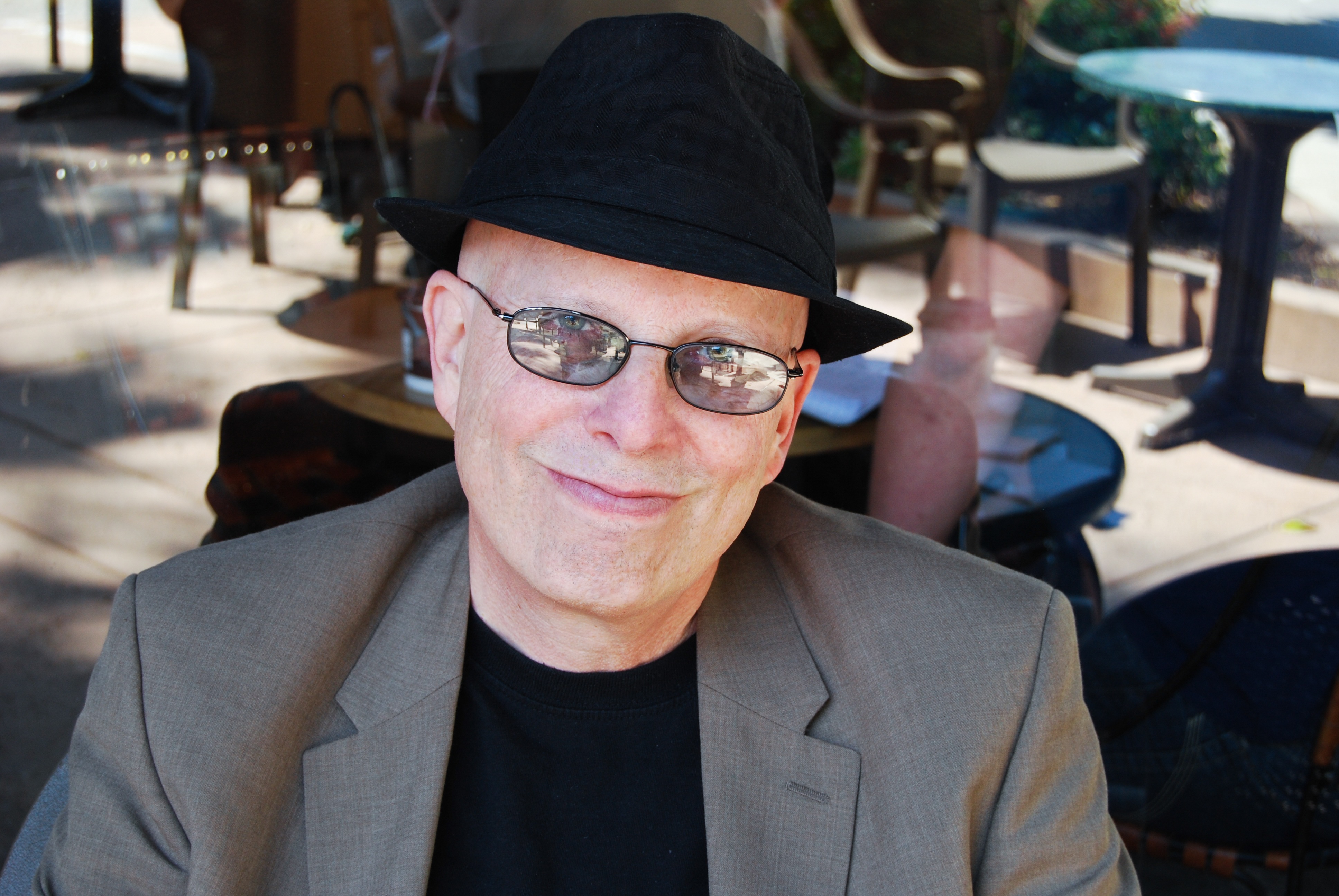 George Cotkin is Emeritus Professor of History at California Polytechnic State University. He is the author of Feast of Excess: A Cultural History of the New Sensibility, Dive Deeper: Journeys with Moby-Dick and other books. He has known Nelson for over forty years and introduced him to Eileen.
George Cotkin is Emeritus Professor of History at California Polytechnic State University. He is the author of Feast of Excess: A Cultural History of the New Sensibility, Dive Deeper: Journeys with Moby-Dick and other books. He has known Nelson for over forty years and introduced him to Eileen.
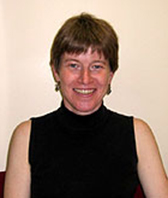
Colleen Doody is an Associate Professor at DePaul University. With guidance from Nelson Lichtenstein, she turned the dissertation that she finished at the University of Virginia into Detroit’s Cold War: The Origins of Postwar Conservatism (2013), which the University of Illinois Press published in its Working Class in American History series. She is currently working on a history of the candy industry in Chicago.

Mary Furner is Research Professor Emerita at the University of California, Santa Barbara. Her schoalrship examines the history of economic thought and public policy in the United States. She is the author of Advocacy and Objectivity: A Crisis in the Professionalization of American Social Science, 1865-1910 (1975) and the editor, with Michael Lacy, of The State and Social Investigation in Britain and the United States (1993).
Daniel Geary is the Mark Pigott Associate Professor of U.S. History at Trinity College Dublin and the author of Radical Ambition: C. Wright Mills, the Left, and American Social Thought and Beyond Civil Rights: The Moynihan Report and its Legacy.

Gary Gerstle is the Paul Mellon Professor of American History Emeritus and the Paul Mellon Director of Research in American History at the University of Cambridge. He a political and social historian of the twentieth-century United States. His books include Liberty and Coercion: The Paradox of American Government from the Founding to the Present (2015);Beyond the New Deal Order: U.S. Politics from the Great Depression to the Great Recession, coedited with Nelson Lichtenstein and Alice O’Connor (2019); and The Rise and Fall of the Neoliberal Order: America and the World in the Free Market Era (2022).
 Maria Fedorova is an Assistant Professor in the Department of Russian Studies at Macalester College. Her research interests include transnational history, history of food and agriculture, as well as Russian/Soviet history. Her recent publication examined the history of seed exchange between the United States and the Soviet Union in the 1920s. She is currently working on a book manuscript that focuses on the U.S.-Soviet agricultural exchange of knowledge and technology during the interwar period.
Maria Fedorova is an Assistant Professor in the Department of Russian Studies at Macalester College. Her research interests include transnational history, history of food and agriculture, as well as Russian/Soviet history. Her recent publication examined the history of seed exchange between the United States and the Soviet Union in the 1920s. She is currently working on a book manuscript that focuses on the U.S.-Soviet agricultural exchange of knowledge and technology during the interwar period.
 Jesse Ronald Halvorsen recently received his Ph.D in History from the University of California – Santa Barbara. His dissertation explored three discrete but interrelated aspects of transportation – mechanization and modernization in West Coast longshoring, motor carrier deregulation, and innovations and development in warehousing and logistics – that collectively revolutionized the movement of goods in the United States broadly.
Jesse Ronald Halvorsen recently received his Ph.D in History from the University of California – Santa Barbara. His dissertation explored three discrete but interrelated aspects of transportation – mechanization and modernization in West Coast longshoring, motor carrier deregulation, and innovations and development in warehousing and logistics – that collectively revolutionized the movement of goods in the United States broadly.
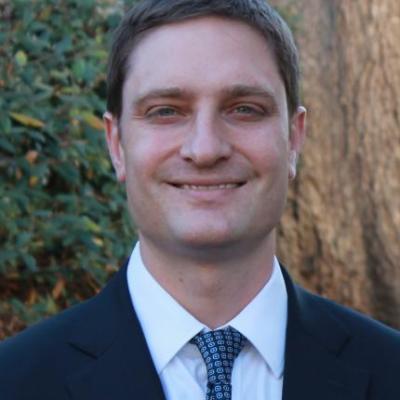 Shane Hamilton is Senior Lecturer in Management at The York Management School, University of York. He is the author of Supermarket USA: Food and Power in the Cold War Farms Race (Yale, 2018) and the award-winning Trucking Country: The Road to America’s Wal-Mart Economy (Princeton, 2008). He is associate editor of Enterprise & Society and co-editor of American Business, Politics, and Society (University of Pennsylvania Press). He has published articles on food and agribusiness in Technology & Culture, Strategic Entrepreneurship Journal, History of Retailing and Consumption, Enterprise & Society, Business History Review, and Agricultural History.
Shane Hamilton is Senior Lecturer in Management at The York Management School, University of York. He is the author of Supermarket USA: Food and Power in the Cold War Farms Race (Yale, 2018) and the award-winning Trucking Country: The Road to America’s Wal-Mart Economy (Princeton, 2008). He is associate editor of Enterprise & Society and co-editor of American Business, Politics, and Society (University of Pennsylvania Press). He has published articles on food and agribusiness in Technology & Culture, Strategic Entrepreneurship Journal, History of Retailing and Consumption, Enterprise & Society, Business History Review, and Agricultural History.
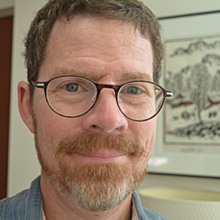
Tobias Higbie is Professor of History and Labor Studies at UCLA. He is the chair of Labor Studies and Associate Director of the Institute for Research on Labor & Employment. He teaches classes on labor and social movement history, migration history, and labor studies. Higbie is the author of Labor’s Mind: an Intellectual History of the Working Class (University of Illinois Press, 2019) and Indispensable Outcasts: Hobo Workers and Community in the American Midwest, 1880-1930 (University of Illinois Press, 2003). He is also author of articles on migration, print culture, working-class education, and robots. He holds a Ph.D. in History from the University of Illinois, and is a member of the American Federation of Teachers.

Meg Jacobs teaches history and public affairs at Princeton University. She is the prize-winning author of several books, including most recently Panic at the Pump: The Energy Crisis and the Transformation of American Politics in the 1970s. She is currently working on a new book about the New Deal and World War II.

Jill Jensen teaches courses on the history of capitalism, business ethics, workers in the global economy, and the history of work at the University of Redlands. She has published several articles on the history of the United Nations and the International Labor Organization (ILO), particularly on U.S. perspectives regarding inter-governmental institutions, international human rights, comparative social policy, and women’s work and gender. She is editor with Nelson Lichtenstein of the volume, The ILO from Geneva to the Pacific Rim: West Meets East (Palgrave Macmillan, 2016).
Neil Johnson is a PhD candidate in the Department of History at the University of California, Santa Barbara. His dissertation, entitled “Reinventing the U.S. Workforce: Job Training and the Politics of Human Capital, 1945-1992,” examines the various ways in which vocational education and job training figured in liberal policy responses to the secular decline of manufacturing employment in the second half of the twentieth century.
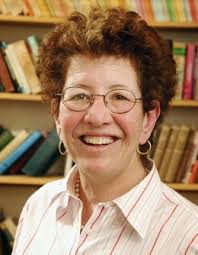
Laura Kalman is a Distinguished Professor of History at the University of California Santa Barbara, where she teaches recent U.S. and legal history. She is the author of The Long Reach of the Sixties: LBJ, Nixon, and the Making of the Contemporary Supreme Court (2017) and Right Star Rising: A New Politics, 1974-1980 (2010).
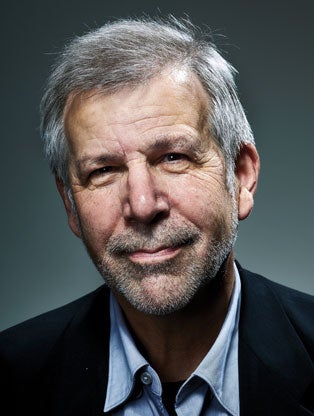
Michael Kazin is a professor of history at Georgetown University and an emeritus editor of Dissent. He is the author of seven books, the most recent of which is What It Took to Win: A History of the Democratic Party (2022). He next plans to write a biography of Samuel Gompers.

Jennifer Klein is the Bradford Durfee Professor of History at Yale University. Klein’s research spans the fields of 20th century U.S. labor history, urban history, social movements and political economy. Her publications includeCaring for America: Home Health Workers in the Shadow of the Welfare State(Oxford, 2012), co-authored with Eileen Boris, which was awarded the Sara A. Whaley book prize from the National Women’s Studies Association; andFor All These Rights: Business, Labor, and the Shaping of America’s Public-Private Welfare State(Princeton, 2003) which was awarded the Ellis W. Hawley Prize in Political History/Political Economy from the Organization of American Historians and The Hagley Prize in Business History from the Business History Conference. She co-edited the journal, International Labor and Working-Class History (ILWCH), for 5 years and has served on the Editorial Board for two decades. Klein is currently on the founding Executive Board of A Better Connecticut Institute, a non-profit research and public policy enterprise aimed at addressing the state’s racial and economic inequalities and the assaults on public services and institutions.

Nelson Lichtenstein is Distinguished Professor in the Department of History at the University of California, Santa Barbara, where he directs the Center for the Study of Work, Labor, and Democracy. He is the author or editor of 16 books, including a biography of the labor leader Walter Reuther and State of the Union: A Century of American Labor (2002, 2013 revised). Professor Lichtenstein has held fellowships from the National Endowment for the Humanities, the Rockefeller and Guggenheim Foundations, the University of California, and from the Fulbright Commission and the Oregon Center for the Humanities. In 2008 he was elected to the Society of American Historians and in 2012 the Sidney Hillman Foundation awarded him its Sol Stetin Award for lifetime achievement in labor history. His reviews and opinion pieces have appeared in The Los Angeles Times, The New York Times, Dissent, New Labor Forum, American Prospect, and academic journals.
Henry Maar is a modern US historian whose work focuses on the intersection of peace activism, foreign policy, and domestic politics. He received his PhD from UCSB in 2015 and was subsequently the Agnes N. Haury postdoctoral fellow at the Center for the United States and the Cold War and America. He is the autor of Freeze! The Grassroots Movement to Halt the Arms Race and End the Cold War (Cornell UP, 2021). He is currently a lecturer at Cal State University, Northridge.

John Munro teaches US and international history in the history department at the University of Birmingham. He has previously taught at St. Mary’s University in Halifax, Canada, and held fellowships at the University of Tübingen, the University of Rostock, and Harvard University. His publications include The Anticolonial Front: The African American Freedom Struggle and Global Decolonization, and articles in the Canadian Review of American Studies, Third World Quarterly, History Workshop Journal, and in Decolonization and the Cold War: Negotiating Independence, edited by Leslie James and Elisabeth Leake. He is editor, with Kirrily Freeman, of Reading the Postwar Future: Textual Turning Points from 1944.
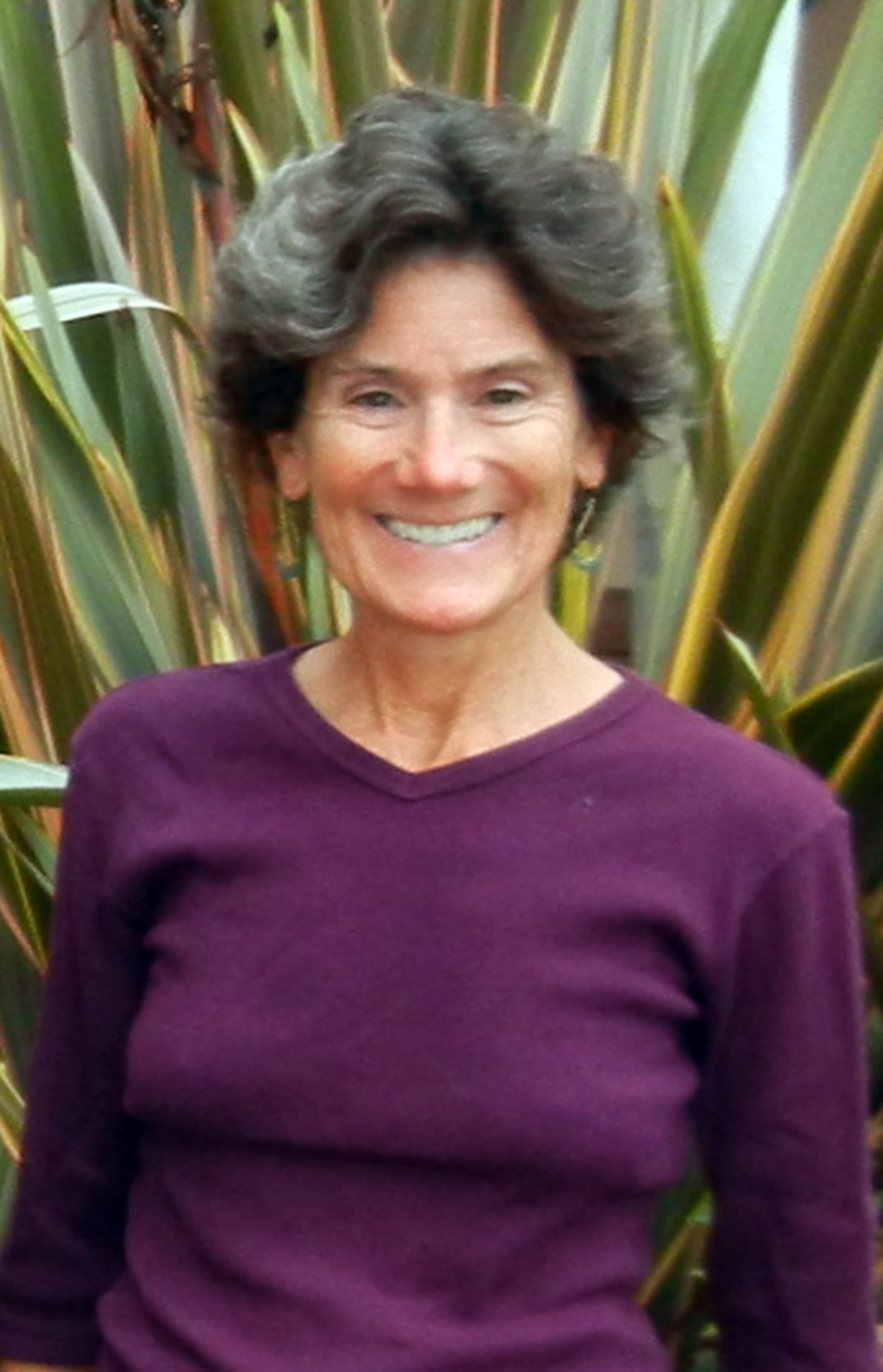
Alice O’Connor is a professor of history at the University of California, Santa Barbara. She teaches on the intersection of policy, politics, and knowledge. She is the author of Poverty Knowledge: Social Science, Social Policy, and the Poor in 20th Century U.S. History (2001) and the editor, with Nelson Lichtenstein and Gary Gerstle, of Beyond the New Deal Order (2019). She is also the director of the UCSB Blum Center on Poverty, Inequality, and Democracy.
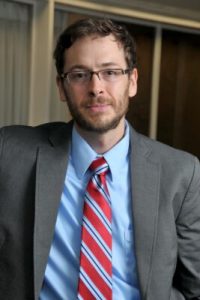 Brishen Rogers is a Professor and the Georgetown Law Center. His research focuses on labor/employment law, with particular interests in low wage work and the impact of technology on employment practices. He is currently writing a book for MIT Press on the law and political economy of new workplace technologies. His recent law review articles have appeared in the Texas Law Review, Harvard Law and Policy Review, Chicago Law Review Online, and various labor/employment law journals, and have been cited by the California Supreme Court and the European Court of Justice in landmark cases. His popular works include several recent articles in the Boston Review on automation, work, and universal basic income. Prior to joining the Temple Faculty, Rogers was a Climenko Fellow and Lecturer in Law at Harvard Law School. In Spring 2017, he was a visiting professor at Washington University in St. Louis Law School, and at the European University Institute in Florence, Italy. In the fall of 2019 he will be a visiting professor at Georgetown University Law Center.
Brishen Rogers is a Professor and the Georgetown Law Center. His research focuses on labor/employment law, with particular interests in low wage work and the impact of technology on employment practices. He is currently writing a book for MIT Press on the law and political economy of new workplace technologies. His recent law review articles have appeared in the Texas Law Review, Harvard Law and Policy Review, Chicago Law Review Online, and various labor/employment law journals, and have been cited by the California Supreme Court and the European Court of Justice in landmark cases. His popular works include several recent articles in the Boston Review on automation, work, and universal basic income. Prior to joining the Temple Faculty, Rogers was a Climenko Fellow and Lecturer in Law at Harvard Law School. In Spring 2017, he was a visiting professor at Washington University in St. Louis Law School, and at the European University Institute in Florence, Italy. In the fall of 2019 he will be a visiting professor at Georgetown University Law Center.
 Reuel Schiller is the Honorable Roger J. Traynor Chair and Professor of Law at the University of California, Hastings College of the Law. His teaching and scholarship focus on American legal history, administrative law, and labor and employment law. He has written extensively about the legal history of the American administrative state, and the historical development of labor law and employment discrimination law. His book, Forging Rivals: Race, Class, Law, and the Collapse of Postwar Liberalism (Cambridge University Press, 2015), won the American Society for Legal History’s John Phillip Reid Award and was an Honorable Mention for the Law and Society Association’s J. Willard Hurst Award. Schiller has also received the American Bar Association, Administrative Law Section’s scholarship award and the Rutter Award for Teaching Excellence. In addition to his teaching and scholarship, Professor Schiller is a co-editor of Cambridge University Press’s Studies in Legal History book series, and the convener of the American Society for Legal History’s Johnson Fellowship for first book authors. He is also serves on the editorial board of the Law and History Review.
Reuel Schiller is the Honorable Roger J. Traynor Chair and Professor of Law at the University of California, Hastings College of the Law. His teaching and scholarship focus on American legal history, administrative law, and labor and employment law. He has written extensively about the legal history of the American administrative state, and the historical development of labor law and employment discrimination law. His book, Forging Rivals: Race, Class, Law, and the Collapse of Postwar Liberalism (Cambridge University Press, 2015), won the American Society for Legal History’s John Phillip Reid Award and was an Honorable Mention for the Law and Society Association’s J. Willard Hurst Award. Schiller has also received the American Bar Association, Administrative Law Section’s scholarship award and the Rutter Award for Teaching Excellence. In addition to his teaching and scholarship, Professor Schiller is a co-editor of Cambridge University Press’s Studies in Legal History book series, and the convener of the American Society for Legal History’s Johnson Fellowship for first book authors. He is also serves on the editorial board of the Law and History Review.
 Elizabeth Tandy Shermer is an associate professor of history at Loyola University of Chicago. As a graduate student at the University of California, Santa Barbara, she co-founded the Center for the Study of Work, Labor, and Democracy with Nelson Lichtenstein. They also co-edited the volume, The Right and Labor in America: Politics, Ideology, and Imagination. She has also edited a volume on Barry Goldwater and written Sunbelt Capitalism: Phoenix and the Transformation of American Politics. Her publications also include articles in top US and European journals; chapters in peer-reviewed books; and opinion pieces in newspapers published around the world. Harvard University Press published her 2021 Indentured Students under its Belknap Press imprint. She is currently finishing a revisionist history of higher education, tentatively titled, The Business of Education.
Elizabeth Tandy Shermer is an associate professor of history at Loyola University of Chicago. As a graduate student at the University of California, Santa Barbara, she co-founded the Center for the Study of Work, Labor, and Democracy with Nelson Lichtenstein. They also co-edited the volume, The Right and Labor in America: Politics, Ideology, and Imagination. She has also edited a volume on Barry Goldwater and written Sunbelt Capitalism: Phoenix and the Transformation of American Politics. Her publications also include articles in top US and European journals; chapters in peer-reviewed books; and opinion pieces in newspapers published around the world. Harvard University Press published her 2021 Indentured Students under its Belknap Press imprint. She is currently finishing a revisionist history of higher education, tentatively titled, The Business of Education.
 Lauren Rebecca Sklaroff is Professor of History and Women’s and Gender Studies at the University of South Carolina. Her work centers on how race, ethnicity, and gender inform the development of American cultural institutions. Her first book, Black Culture and the New Deal: The Quest for Civil Rights in the Roosevelt Era, was published by the University of North Carolina Press in 2009 and her second book, Red Hot Mama: The Life of Sophie Tucker, was published by the University of Texas in 2018. Her work has appeared in the Chicago Tribune, the Los Angeles Times, Salon.com and several other media outlets and academic journals. Dr. Sklaroff has been a recipient of an NEH Public Scholars Fellowship, a Smithsonian Fellowship, New York Public Library Fellowship.
Lauren Rebecca Sklaroff is Professor of History and Women’s and Gender Studies at the University of South Carolina. Her work centers on how race, ethnicity, and gender inform the development of American cultural institutions. Her first book, Black Culture and the New Deal: The Quest for Civil Rights in the Roosevelt Era, was published by the University of North Carolina Press in 2009 and her second book, Red Hot Mama: The Life of Sophie Tucker, was published by the University of Texas in 2018. Her work has appeared in the Chicago Tribune, the Los Angeles Times, Salon.com and several other media outlets and academic journals. Dr. Sklaroff has been a recipient of an NEH Public Scholars Fellowship, a Smithsonian Fellowship, New York Public Library Fellowship.
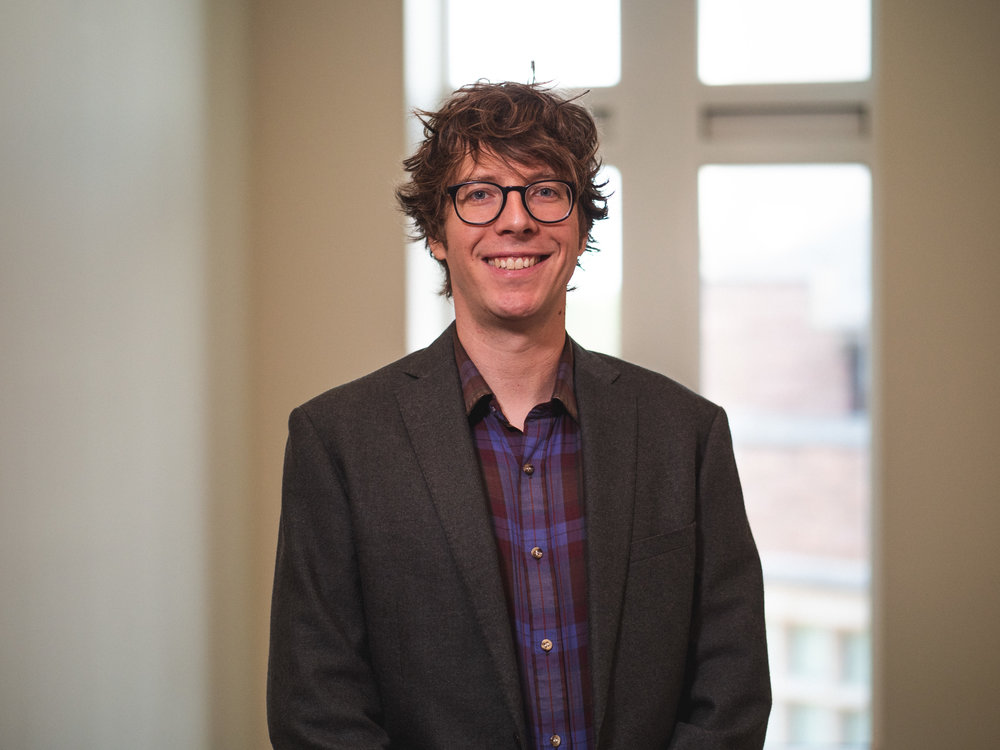
Kristoffer Smemo is a lecturer in the Department of History at Washington University, St. Louis. His research focuses on the intersection of partisan politics, social movements, and policymaking in the United States. Kit’s research and writing has appeared in the Journal of American History, Labor, and Critical Historical Studies. His first book, Making Republicans Liberal: Social Struggle and the Politics of Accommodation in the Twentieth Century United States, will be published by the University of Pennsylvania Press.
 Samir Sonti holds a B.S. in Economics from the Wharton School and a B.A. in Political Science from the University of Pennsylvania. Sonti earned his Ph.D. in History from the University of California, Santa Barbara, with a concentration on 20th century U.S. labor and political economy. He has worked as a political organizer for the Pennsylvania Association of Staff Nurses and Allied Professionals (PASNAP), and as a researcher for UNITE HERE, a union representing hospitality workers in the U.S. and Canada. He is currently expanding his dissertation, entitled The Price of Prosperity: Inflation and the Limits of U.S. Liberalism, 1932-1980, for publication. Since 2019, Samir has been the Books and Arts Editor of SLU’s New Labor Forum. He has recently joined the faculty of the Urban Studies and Labor Studies programs at CUNY.
Samir Sonti holds a B.S. in Economics from the Wharton School and a B.A. in Political Science from the University of Pennsylvania. Sonti earned his Ph.D. in History from the University of California, Santa Barbara, with a concentration on 20th century U.S. labor and political economy. He has worked as a political organizer for the Pennsylvania Association of Staff Nurses and Allied Professionals (PASNAP), and as a researcher for UNITE HERE, a union representing hospitality workers in the U.S. and Canada. He is currently expanding his dissertation, entitled The Price of Prosperity: Inflation and the Limits of U.S. Liberalism, 1932-1980, for publication. Since 2019, Samir has been the Books and Arts Editor of SLU’s New Labor Forum. He has recently joined the faculty of the Urban Studies and Labor Studies programs at CUNY.
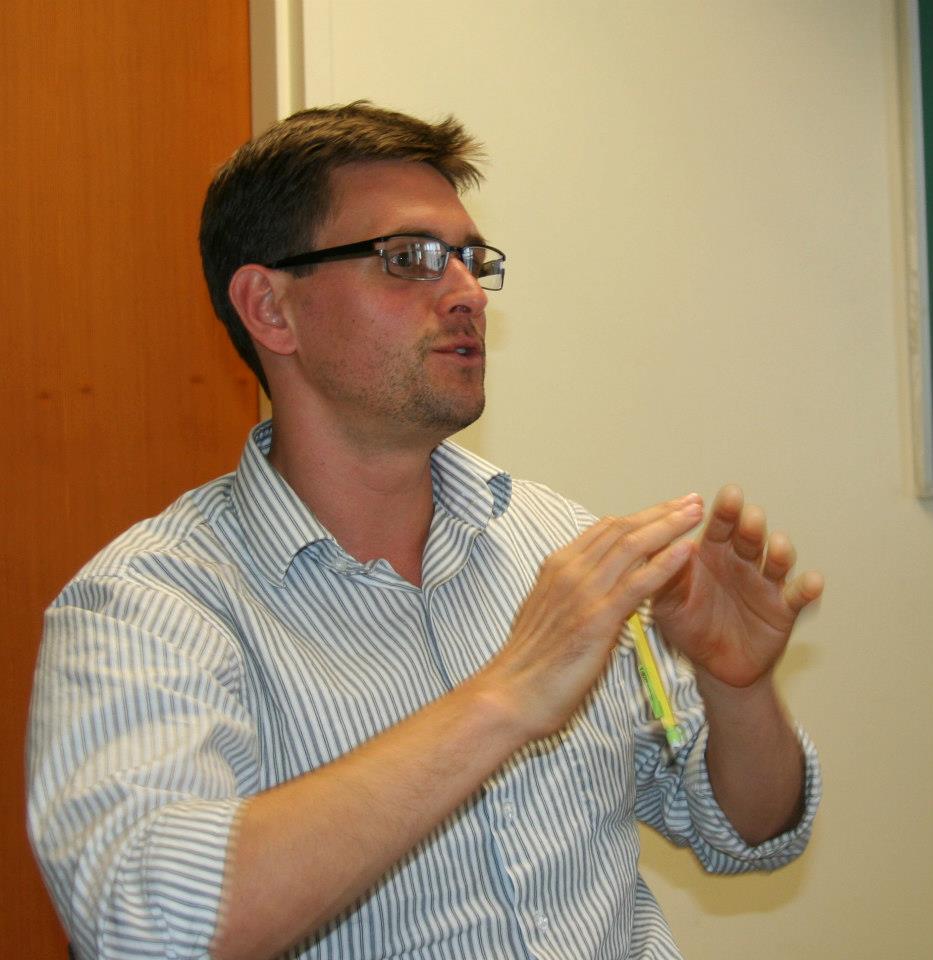 Cody Stephens is a US historian interested in the history of economic thought, intellectual history, social movements, and public policy. His research program focuses on social scientists—especially economists, but also sociologists—as political actors. He analyzes the prescriptive conclusions underlying schools of social science as authors toggle between audiences of their peers, the general public, and policymakers. He is specifically interested in the intersection between theories of the “global” or “world” economy, US and Latin American transnational social movements, and US foreign policy toward Latin America. Hisbook manuscript, under contract with the Brill Historical Materialism series, traces the transmission of economic theories of “Third World” underdevelopment from Latin America to the United States in the 1960s, reversing the more common tendency to view ideas emanating outward from the developed “core” into the underdeveloped “periphery” of the world economy.
Cody Stephens is a US historian interested in the history of economic thought, intellectual history, social movements, and public policy. His research program focuses on social scientists—especially economists, but also sociologists—as political actors. He analyzes the prescriptive conclusions underlying schools of social science as authors toggle between audiences of their peers, the general public, and policymakers. He is specifically interested in the intersection between theories of the “global” or “world” economy, US and Latin American transnational social movements, and US foreign policy toward Latin America. Hisbook manuscript, under contract with the Brill Historical Materialism series, traces the transmission of economic theories of “Third World” underdevelopment from Latin America to the United States in the 1960s, reversing the more common tendency to view ideas emanating outward from the developed “core” into the underdeveloped “periphery” of the world economy.

Joseph J. Thorndike, director of the Tax History Project at Tax Analysts, is a nationally recognized tax historian. He is a regular columnist for Tax Analysts’ publications, including Tax Notes Federal magazine, and a writer for the Tax Analysts blog. His writing has also appeared in the New York Times, the Washington Post, the Wall Street Journal, the New York Daily News, Barron’s, Bloomberg, Time.com, Forbes.com and numerous academic journals. A prolific author on the history of American taxation, Thorndike’s latest book is Their Fair Share: Taxing the Rich in the Age of FDR, published by the Urban Institute Press. He also the coauthor (with Steven A. Bank and Kirk J. Stark) of War and Taxes, and the co-editor (with Dennis J. Ventry, Jr.) of Tax Justice: The Ongoing Debate. His current projects include: 1500 Pennsylvania, a history of the United States Treasury Department, and Other People’s Taxes: Avoidance, Evasion, and the Rise of Progressive Taxation.
Jean-Christian Vinel is Associate Professor in American history at Paris-Diderot. He is the author of The Employee: A Political History, (Penn 2013), and the forthcoming anthology The New Deal Political Economy and Its Discontents, co-edited with Romain Huret and Nelson Lichtenstein also with the University of Pennsylvania Press.
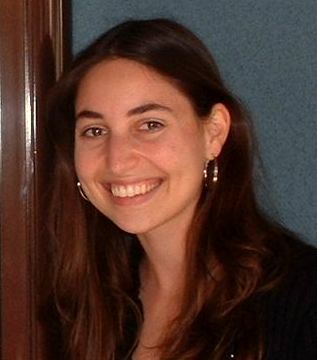 Leandra Zarnow is an associate professor in the Department of History and affiliated faculty in Women, Gender, and Sexuality Studies and Jewish Studies at University of Houston. She is a specialist in modern U.S. women’s political, legal, and intellectual history with additional interests in media and transnational studies. Her first book, Battling Bella: The Protest Politics of Bella Abzug, was published by Harvard in 2019. She also co-edited with Stacie Taranto, Suffrage at 100: Women in American Politics since 1920, published by Johns Hopkins University Press in 2020. Zarnow’s next book with Liveright Publishing will reintroduce Heterodoxy, a vivacious feminist secret society that met in Greenwich Village and was a leading incubator of feminism in the early twentieth century. She also keeps busy co-directing a wide-ranging digital humanities project, Sharing Stories from 1977, which documents the participants of and legacy of the 1977 National Women’s Conference. This project received a National Endowment for the Humanities Collaborative Research grant in 2021. Her commentary on women in politics has appeared in Time, the Washington Post, Axios, the Houston Chronicle, and Houston’s NPR, Pacifica Radio, and PBS.
Leandra Zarnow is an associate professor in the Department of History and affiliated faculty in Women, Gender, and Sexuality Studies and Jewish Studies at University of Houston. She is a specialist in modern U.S. women’s political, legal, and intellectual history with additional interests in media and transnational studies. Her first book, Battling Bella: The Protest Politics of Bella Abzug, was published by Harvard in 2019. She also co-edited with Stacie Taranto, Suffrage at 100: Women in American Politics since 1920, published by Johns Hopkins University Press in 2020. Zarnow’s next book with Liveright Publishing will reintroduce Heterodoxy, a vivacious feminist secret society that met in Greenwich Village and was a leading incubator of feminism in the early twentieth century. She also keeps busy co-directing a wide-ranging digital humanities project, Sharing Stories from 1977, which documents the participants of and legacy of the 1977 National Women’s Conference. This project received a National Endowment for the Humanities Collaborative Research grant in 2021. Her commentary on women in politics has appeared in Time, the Washington Post, Axios, the Houston Chronicle, and Houston’s NPR, Pacifica Radio, and PBS.
Paper Abstracts
Carl Bon Tempo, From the “Labor Question” to the “Immigration Question”: Work, Newcomers, and Politics across the Twentieth Century
In the early twentieth century, the “labor question” – how the demands of capital and labor might find a peaceful and beneficial equilibrium? – stood in the center of American politics. In the decades that followed, labor unions, workers, the New Deal state, and businesses crafted a (somewhat incomplete) answer to that question, a story artfully written by historians like Nelson Lichtenstein, among others. In the early twenty-first century, the “immigrant question” – or how, and for some, whether, immigrants might find a place in contemporary American society? – stands in the center of American politics, with no clear answer in sight.
This essay excavates some of the recent history of this “immigrant question.” How did the “immigrant question” come to animate contemporary US politics? How is the immigrant question related to the labor question in history and today? Are there any answers in history (to the labor question) that might help answer the immigrant question today? It argues that two structural changes in the last decades of the twentieth century brought the “immigrant question” to the fore: the ascendancy of neo-liberalism as the logic of American capitalism (at home and in the Americas) and the immigration reforms of the 1960s that heralded the arrival of more and different immigrants than in the previous decades. Only by understanding these two historical developments can clear thinking about the “immigrant question” emerge.
Daniel Geary, McGovernites and Neocons: Michael Harrington, Max Shachtman, and the Realignment of the Democratic Party
Democratic socialists played a surprisingly important role in the transformation of American liberalism. Former Trotskyist Max Shachtman and Michael Harrington believed that the Democratic Party could be realigned to advance social-democratic reforms. But their visions for realignment ultimately diverged. Shachtman backed the AFL-CIO’s refusal to endorse George McGovern in the 1972 election and developed a neoconservative analysis of McGovern liberals as a self-serving “new class.” Harrington allied himself with McGovern liberals, a decision that led him to break with Shachtman and to found the Democratic Socialist Organizing Committee (DSOC), which eventually morphed into the Democratic Socialists of America (DSA). Examining the divisions between these two socialists helps illustrate the broader divergence that emerged during the McGovern moment between left-liberals and neoconservatives with insights into divisions on the left in our own time.
Shane Hamilton, Management and Power in Global Supply Chains: The Need for History in an Ahistorical Field
The contemporary field of Operations Management is flourishing in business schools around the world, training the managers of the future to seek and capture value in global supply chains. In the 2,726 articles published in the field’s top four journals since 1994, however, only 43 (1.5%) even include the word “history.” What passes as history in the field is often summed up in staccato b-speak, with references to “supply chain 2.0” and the like. This is not simply a matter of verbal compression, but is instead a matter of disowning history, as operations management researchers and practitioners are actively engaged in erasing alternative paths for the supply chains of the future by imagining linear predetermined pasts. Remarkably, however, the contemporary literature on supply chains suggests that our current historical moment is fraught with uncertainty, as the loci of power in supply chains may be shifting dramatically from large buyer-driven chains to more fragmentary networks with more dispersed contestations of power by multiple stakeholders throughout the value chain. In this context, the work of historians and historically sensitive social scientists who have studied the broader contexts of supply chains could make important contributions to the field of management. In doing so, historians have an opportunity to help operations managers of the future become more critically aware of the political and economic nature of their work. This essay will suggest several ways in which historians and management scholars can cross the disciplinary chasm that currently characterizes supply chain studies.
Meg Jacobs, Out of this Furnace: A Reexamination of Labor, Power, and Politics in the New Deal Order
In 1941, Thomas Bell published his classic novel, Out of this Furnace, about industrial unionism as the creation of and pathway forward for a new class of Americans, the ethnic industrial immigrant working class who rolled steel, mined coal, and assembled automobiles. After fifty years of hardship, in the 1930s, they had gained hope through the recognition of a new industrial union, one they fought for and one that allowed them, as the central character Dobie proclaims, to declare themselves a new kind of American. “If I’m anything at all I’m an American, only I’m not the kind you read about in history books . . . It wasn’t where you were born or how you spelled your name or where your father had come from. It was the way you thought and felt about certain things. About freedom of speech and the equality of men and the importance of having one law—the same law—for rich and poor, for the people you liked and the people you didn’t like.” In his classic 1982 book Labor’s War at Home, about just the types of workers who populate Bell’s novel, Lichtenstein, with deep sympathies to the New Left, suggested that as hopeful as Bell’s narrative was, the mobilization for World War II necessarily limited the gains that had been achieved. By 1945, after five years of all-out production, the ban on strikes, and the stifling of discontent, Dobie’s world, according to Lichtenstein, looked a lot different than it had in 1941; the union at best was a collaborationist tool to statist capitalism. Yet, even as he made that claim, Lichtenstein had a deep appreciation for the contestation and the politics that ultimately limited labor’s power. Rejecting an inevitability about cooptation, Lichtenstein’s Labor’s War at Home, like much of his work that has followed, shows that at certain moments, under certain conditions, unionism gained much needed strength from the state. From the vantage point of 2019, it is time to revisit what was gained and what was lost by labor’s collaboration with Roosevelt’s New Deal.
Jill Jensen, Capturing Global Development: The United States and “Soft Aid,” from Kennedy to Ford
There is nothing soft about soft power, a term that came into use in the 1990s after the publication of Joseph Nye’s influential book, Soft Power: The Means to Success in World Politics. Decades earlier, a different term had been employed in US support of global development, equally as perplexing: “soft aid.” Government funding of this sort had undergone a significant evolution in tenor, from being considered a “subversive” assault on the free market to a reasonable alternative to development assistance, then in a time when Americans had grown increasingly impatient with US global escapades. With the Vietnam War as a backdrop, and amidst the “development decades” of the 1960s and 70s, soft aid programs seemed a logical approach, gaining widespread congressional approval. The only questions remained how, and to where, would the money flow?
Considering these dynamics embedded deeply within the framework of the Cold War, and approaching an analysis of US politics and policymaking with significant influence from Nelson Lichtenstein as a mentor, I describe in this paper the way in which politicians wrangled with one another and with economists and technical specialists over the contours of an expanding development industry. With mounting funds from the influx of petrodollars infusing Western lending institutions, much was at stake. Within the paper, I evaluate the battle for control of the development agenda from Kennedy’s Food for Peace, through Johnson’s Global War on Poverty, and on to the choices made during the Nixon and Ford administrations to step away from large-sale TVA-type programs and maneuver through the “crisis of development” of the 1970s.
John Munro, Anticommunism and Empire
Situating anticommunism as integral to US imperial culture after World War II, this essay will draw upon two streams of scholarship: one dealing with the role of anticommunism in postwar US politics, the other concerned with the relationship between histories of capitalism and of United States imperialism. The first of these streams was in part inaugurated by Nelson Lichtenstein’s work, the other in part inspired by it, but this paper aims less to dwell on these contributions than point to how they might be more productively put into conversation with cultural imperial histories in order to enhance our understanding of both anticommunism and empire. After opening with a mention of Nelson Lichtenstein’s work on anticommunism, and of the labor and empire scholarship, I will move on to give an overview of cultural histories of empire in order to claim the relevance of this third subfield to the first two. Finally, I will attempt to support this claim by considering anticommunist imperial culture and the reorganization of US racial capitalism after World War II.
Brishen Rogers, The Case for Default Unionism
This article investigates the relationship between law and workplace technological development. It focuses on emerging data-driven technologies, which range from advanced monitoring devices through machine learning and other forms of algorithmic governance. It argues that employers can utilize such technologies for two quite distinct purposes—to enhance labor productivity or to exert power over workers—and that the laws constituting and governing employment help determine which approach predominates. It further argues that giving workers and the public a greater voice in employers’ technological choices could encourage employers to favor productivity-enhancing technologies, and could encourage a more equal and fairer distribution of resources and power. In the course of developing this argument, the article also demonstrates that automation, though a real and important phenomenon, is not the world-historic threat many have posited.
Reuel Schiller, “The Magnanimity of Disorder”: Counterculture Economics and the Rise of Neoliberal Regulation
One of the hallmarks of fin-de-siècle, neoliberal regulatory strategies was a belief that market mechanisms could be used as a powerful tool of regulation. Whether it was a commitment to “New Governance” within public administration literature, Clintonian policy prescriptions to “Reinvent Government,” or academic commitments to the “Renew Deal,” the last decades of the twentieth century saw demands for the use of market-based regulatory tools to solve social problems as varied as workplace safety, environmental degradation, racial discrimination, under-performing schools, and substandard healthcare. There has been little historical writing about the emergence of market-driven regulation. The writing that does exist focuses on the rise of neo-classical economic thought and the conservative politics that operationalized it in the 1980s. In my previous work I have demonstrated that, in the United States, neoliberal regulation stemmed not from Ronald Reagan’s ascension, but from the center-left political wellsprings of Jimmy Carter and Bill Clinton’s Democratic Party.
In “The Magnanimity of Disorder” I will address the intellectual side of this story. I will show that the market-based regulatory concepts that came to dominate policy creation in the 1990s had their origins in the ideas of heterodox, left-leaning intellectuals of the 1960s and 1970s. Widely read thinkers such as Stewart Brand, Charles Reich, and E.F. Schumacher laid the intellectual groundwork for the concepts that lay at the center of neoliberal regulatory strategies: hostility towards large institutions, both public and private; the valorization of individual entrepreneurialism; and a faith in small, decentralized markets. This paper will demonstrate how the ideas of these thinkers made their way into the literature of public administration in the 1970s and 1980s and, how, in turn, they came to dominate the regulatory thinking of Democratic policy-makers during the last three decades of the twentieth century.
Lauren Sklaroff, “A Working Class Hero Is Something to Be”: The Evolution of Working Class Popular Culture
This paper will explore the state of scholarship on working class cultural identity, beginning with research that focuses on the late 19th century. As historians such as Roy Rosensweig and Michael Denning began to place equal weight on cultural practices as others did on more formal iterations of labor activism, the lives of the working class opened up more fully for investigation. Research proved that music, films, advertisements, and other products of a nascent mass media at the turn of the century fundamentally shaped working class identity, providing both physical space and connecting ideological imaginations. While the Depression Era could not have been more critical to what Denning deems as the “Cultural Front,” literature focusing on the post-war period seems to chart the steady demise of working class cultural consciousness, even as rock and roll, country music, and other extensions of working class ideologies were on the rise. Jefferson Cowie’s titular claim about the “last days of the working class” extend to discussions of both popular culture and formal politics; yet perhaps the two should not be so neatly conceptualized alongside one another. My paper will consider both the effects of popular culture on the working class (those who received it and produced it), as well as focusing on formative sites of working class solidarity that are generally marginalized by traditional historians, such as music and sports.
Kristoffer Smemo, From the Rouge to the White House: Labor and the Transformation of American Democracy in The Most Dangerous Man in Detroit
Nelson Lichtenstein’s towering biography of UAW leader Walter Reuther remains a touchstone for scholars of labor, capitalism, and politics in the twentieth century United States. The book offers a deeply textured exploration of how organized labor transformed American democracy in the mid-twentieth century. At the center of it all stood Reuther, a dynamic labor leader and intellectual. Under Reuther’s leadership, ordinary autoworkers brought the Big Three to the bargaining table, and in the process brought the demands of working people into the corridors of power. The former Socialist spearheaded efforts to give labor a real voice in electoral politics. That included the wrenching effort to realign the Democratic Party and destroy its old base in the Jim Crow South. At the same time, as Lichtenstein makes clear, Reuther and the UAW remained trapped within a world of their own making. Perhaps no figure better epitomized the tension between organized labor’s grand electoral ambitions and the limits of working-class politicking than Reuther. Now, a quarter century since it was first published, Lichtenstein’s biography continues to offer compelling ways to think through the relationship between mass social movements and political parties.
Douglas Smith, Malapportionment, Gerrymandering, and Minority Rule: Lessons from the Past for the Future
This paper examines the Supreme Court’s reapportionment decisions of the 1960s and the lessons those decisions have for contemporary struggles against partisan gerrymandering. The 5-4 decision of the Supreme Court of the United States in Rucho v. Common Cause in June 2019 dealt a harsh blow to efforts to curb excessive gerrymandering. The unwillingness of the Court to address an obvious threat to democracy echoed, in both its logic and in its cowardice, the 1946 decision of the Court in Colegrove v. Green in which the justices refused to “enter the political thicket” of malapportionment, a practice once considered a far greater roadblock to democracy than gerrymandering. Although the practice of gerrymandering has been around for centuries, partisans on both sides of the aisle have come to rely on the practice with increased frequency and intensity over the past half-century. Ironically the current dependence on gerrymandering stems in large part from a series of Supreme Court decisions in the 1960s that rejected the Court’s holding in Colegrove and instead established the principal of “one person, one vote.” Proponents of reapportionment, led by the labor movement, hailed the decisions as “magnificently liberating,” a step “toward establishing democracy in the United States.” Opponents denounced them as the most significant “usurpation of power by the judicial branch” in American history and spent five years trying to amend the decisions. The principal of “one person, one vote” soon became the norm in every state and led to a profound transformation in American democracy. And yet, gerrymandering remains a massive stumbling block to the realization of American democracy. Gerrymandering continues to protect minority rule at both the state and federal level, just as malapportionment once did. While the current Supreme Court refuses to enter the thicket of partisan gerrymandering, concerned citizens would do well to remember that the plaintiffs and litigants in the reapportionment struggles of the 1960s ultimately prevailed against even longer odds and equally imposing obstacles.
Samir Sonti, The Politics of Inflation, Past and Present
This paper traces the career of a tradition that emerged out of the left of the New Deal and which offered an analysis of inflation that emphasized the importance of corporate power over the investment and price-making functions. Blending older insights from institutional economics with theoretical innovations associated with Keynes, this tradition can be called Institutional Keynesianism. Institutional Keynesianism was born in the early New Deal Department of Agriculture, and its adherents went on to play significant roles elsewhere in the federal government and in the industrial union movement. In contrast to the “commercial Keynesians” who have loomed large in the historiography on twentieth-century U.S. history, the Institutional Keynesians sought to equip macroeconomic theory with empirically sound micro-economic foundations. This attentiveness to economic structure enabled the Institutional Keynesians to identify fundamental contradictions in corporate capitalism, including its tendency towards both price inflation and economic stagnation, and led them to propose broad social democratic reforms. Recovering this forgotten left-liberal tradition can add texture to our understanding of the fate of the New Deal Order, as well as the origins of what displaced it.
James Sparrow, “The Postwar Eclipse of the Anti-Monopoly Movement”
This paper will focus on an oddly neglected topic: the mass politics of antitrust policy which, contrary to common wisdom and much historical scholarship, remained quite robust and even intensified in many ways from the 1940s into the late 1960s. Whether measured by legal enforcement or political support, antitrust policy flourished in these years and became the axis for a larger constellation of regulatory and institutional projects of the center-left. Antitrust advocates including Emanuel Celler, Estes Kefauver, and to a lesser extent Thurmond Arnold were leading lights of a Lib-Lab coalition that played a prominent role in the liberal “consensus” of the early postwar years. Unions, labor editors, professional progressives, and adjacent members of the Lib-Lab coalition figured prominently at the meso- and grassroots levels of the action, organizing and sustaining the political pressure that directed this political movement. To understand how this movement managed to mount a serious challenge to the monopolistic political economy of the United States amid its rapid ascent as a newly minted global superpower, it will be necessary to reconstruct the priorities, strategies, and commitments of leaders such as Celler and Kefauver (neither of whom has attracted a substantial scholarly literature), as well as those of their constituencies and political allies.
If the debate over competition and economic concentration had remained a purely domestic matter, the opponents of monopoly might well have won much greater gains than they did, given the intensity of workers’, consumers’, and middle class taxpayers’ concerns about economic security and opportunity. Even so, they were able to expand antitrust enforcement and the broader regulatory state for decades. Yet ultimately the anti-monopoly movement proved vulnerable and began to lose its vitality years before the law and economics movement succeeded in defanging antitrust policy the 1970s onward. This was, I argue, because assaults on monopoly power were intertwined with the larger struggle to define the national interest as the US constructed a political economy capable of sustaining the sprawling national security state at home and containing Soviet ambitions worldwide. Even as some policy makers aimed to “export” antitrust to former enemies and allies in Europe and Asia, domestic firms evaded the most threatening offensives of the antitrust coalition by hiding under the protective umbrella of national security. To obscure cartelistic designs, multinational firms made effective use of international partners in allied countries and client states. Government agencies fostered collusion, concentration, and highly bounded competition through the strategic use of monopsony and secrecy—a tendency most evident in the atomic cartel known as the Atomic Energy Commission, and in the use of Point IV aid to build TVA-style development authorities in the Third World. Over time the antitrust policy that was able to survive amid the Cold War scramble for national security and global predominance increasingly diverged from the anti-monopoly politics that had placed it at the center of postwar state-building. It was not so much limited by its technocratic qualities, as Richard Hofstadter famously argued, as it was by its inability to challenge the militarism and quest for international hegemony that organized economic concentration in the American Century.
Cody Stephens, Results and Prospects of Long March: Assessing the Legacy of 1960s Radicals’ Decision to Wage Struggle from the Within the University
This paper examines radical debates from the late 1960s and early 1970s about the function of the university in the United States. Drawing on discourses of imperialism, anti-colonialism, and structural Marxism, many campus radicals conceived the university as a terrain of struggle. Using correspondence with the editors of the radical magazine Monthly Review as a source base, my paper will explore the doubts graduate students and early-career faculty in several social science disciplines expressed about the social function of their discipline. Ultimately, they rationalized these doubts on epistemological premises that would undergird the cultural turn in humanities and social sciences in the ensuing decades. Fifty years later, historians can assess the pros and cons of the long march through the university, and the viability of academic leftism moving forward.
Joseph Thorndike, Taxpayers in Chief: Presidents, Their Taxes, and the Meaning of Fiscal Citizenship
American presidents have a dual relationship with the federal tax system. On the one hand, they function as the country’s chief tax collector, supervising the only federal agency empowered to enforce the tax law. Simultaneously, however, presidents are themselves taxpayers, subject to all the same legal responsibilities as anyone else.
Predictably, this dual role creates complex tensions. In practical terms, it means that presidents must police their own tax behavior. Although Congress has statutory authority to examine individual tax returns, including those of the president, the scope and limits of that authority are contested and (for the most part) untested. In any case, the Constitution only grants lawmakers the power to examine and investigate; they may expose but not enforce (save during impeachment proceedings).
For most of the 20th century, presidents managed their dual responsibilities as both Tax Collector and Taxpayer in Chief by simply ignoring the problem. In 1973, however, President Richard Nixon found himself embroiled in a major tax scandal, and since that time, presidents have tried to reconcile their dual roles by following an informal tradition of voluntary disclosure. While no one is required by law to release their tax returns to the public, presidents have opted to do exactly that. Effectively, this has allowed for a crowd-sourced audit of the president’s behavior as a taxpayer.
Since the income tax is largely self-assessed, it depends heavily on political and social norms of compliance. These norms are a crucial part of what several scholars have termed fiscal citizenship: the constellation of rights and responsibilities that bind the individual to the state through the process of revenue extraction. How presidents have approached this relationship has been important in its own right as a matter of fairness and politics. But as the nation’s most visible taxpayers, presidents have also helped sustain and reshape that relationship. Which is why Nixon’s tax scandal was both dangerous and transformative. And why current arguments over President Donald Trump’s tax behavior are freighted with so much political and legal importance. If presidents shirk the responsibilities of fiscal citizenship (or even appear to), they risk undermining the social norms that make the income tax a functional revenue device.
This paper explores the history of presidential taxpaying through the lens of fiscal citizenship. It begins with a survey of pre-Nixon tax compliance by American presidents and presidential candidates. It then turns to the Nixon episode itself, including the congressional investigation that eventually exposed Nixon’s tax misbehavior. The third section explores the tradition of voluntary disclosure that arose in the wake of Nixon’s scandal. The final section briefly describes Trump’s refusal to observe this tradition and the congressional response to that decision.
Micah Uetricht, State of the Union and Industrial Democracy in the Twenty-First Century
Nelson Lichtenstein’s State of the Union charts the rise and fall of “the labor question” in American life. Over the past century, this question has gone beyond basic workplace struggles over wages and conditions at work to include broader questions about “industrial democracy” and extending citizens’ guaranteed political rights to the workplace, ranging from rights to free speech on the job or a say in the nature of work to the demand for high wages and a broad, publicly provided “social wage” of basic goods and services as part of what substantive citizenship means. Writing in 2002 but still applicable today, the lack of a resolution to the labor question and the continued erosion of labor rights where they do exist puts, in Lichtenstein’s words, a “question mark on the democratic character of our polity.” In 2019, “the labor question” is back on the table in American life, ushered back in in ways both slow and mundane, and immediate and spectacular. Objective conditions of misery for the American working class quietly tilled the soil for the labor question’s reemergence. But Lichtenstein has long emphasized the importance of ideas and the public battle over them in determining politics and policy. The obvious question, then, is what are those ideas that are bringing back the old labor question in society today, and where are they coming from? I will answer this question, using ‘State of the Union’ as a guide.
Jean-Christian Vinel, An American Dilemma? Liberals, Conservatives, and the Constitutionality of Right-to-Work Laws in the 1940s
This paper is taken from my book in progress, Reaction at Work: The Right, Labor and the Making of the New Gilded Age (under contract with Oxford UP). Revolving around a set of Supreme Court cases bearing on the constitutionality of right-to-work laws decided in the aftermath of the Taft-Hartley Act, it offers a new account suggesting that the current historiography has only analyzed one side of this history of these laws, namely business counter-mobilization and racial segregation, and has not sufficiently historicized the liberal/progressive actors of the story. Missing from the now standard account is the extent to which, since the turn of the century, the debate over unions and their role in the nation’s political economy had been debated within the framework and with the terms of the monopoly question. While New Dealers built labor law to solve the labor question, I argue, they failed to build a labor regime that would offer a theoretical and legal protection to unions against attacks framed in the anti-monopoly language.
Indeed, right-to-work laws revealed an “American dilemma” stemming from a tension between the New Deal politics of security and consumption and 19th century values –individualism, democracy, and the anti-monopoly principle—that had not lost their importance. This tension, which New Deal liberals never quite managed to solve, fed a national debate about the respective rights of individuals and groups in the workplace that grew to large proportions because of the growing role of labor unions in campaign finance during the 1940s, one unique in the western world. By 1948, this tension had found its way to the Supreme Court, where it was given an unexpected resolution. Indeed, several key liberal Justices refused to support labor unions’ claims that Right-to-Work laws were unconstitutional violations of the First Amendment and even expressed their own misgivings about the union shop and the labor organizations’ potential for worker oppression, thus providing the corporate assault on unions indirect but substantial support.
Leandra Zarnow, Gender Gap: Bella Abzug and Mim Kelber’s Labor Feminist Critique of American Politics in the 1980s
In the 1970s, a feminist bloc of consequence coalesced in the Democratic Party to help lead a New Politics Democratic moment that infused the party with progressive movement concerns. This paper explores what happened next through an assessment of Bella Abzug and Mim Kelber’s Gender Gap: Bella Abzug’s Guide to Political Power for American Women, published in 1984 as a leading critique of the Reagan presidency and also Daniel Patrick Moynihan, George Meany, and Jimmy Carter Democrats. After the failed ratification of the Equal Rights Amendment in 1982, feminists seemingly retreated from domestic politics, and yet this is not so. Abzug and Kelber, longtime organizers within movement and party circles, led a frontal challenge of the neoliberal strain building within the Democratic Party. Gender Gap reflected a coalescence of their ideas and influence. Written in conversation with academics and journalists noting a “gender gap” in voter behavior, Abzug and Kelber promoted gender parity in politics as a means to achieve human rights and economic justice as defined by progressive women. This economic heart is often overlooked and the essential ingredient key to understanding Abzug and Kelber’s intersectional critique of Democratic leadership’s abandonment of the New Politics social democratic vision for change. Gender Gap offered a cogent class analysis of US-led global capitalism that highlighted how the feminization of work and poverty could not be solved without a redistribution of power.
Upload
Papers – Upload, View, and Download
Please email Elizabeth Shermer for access to this folder.

